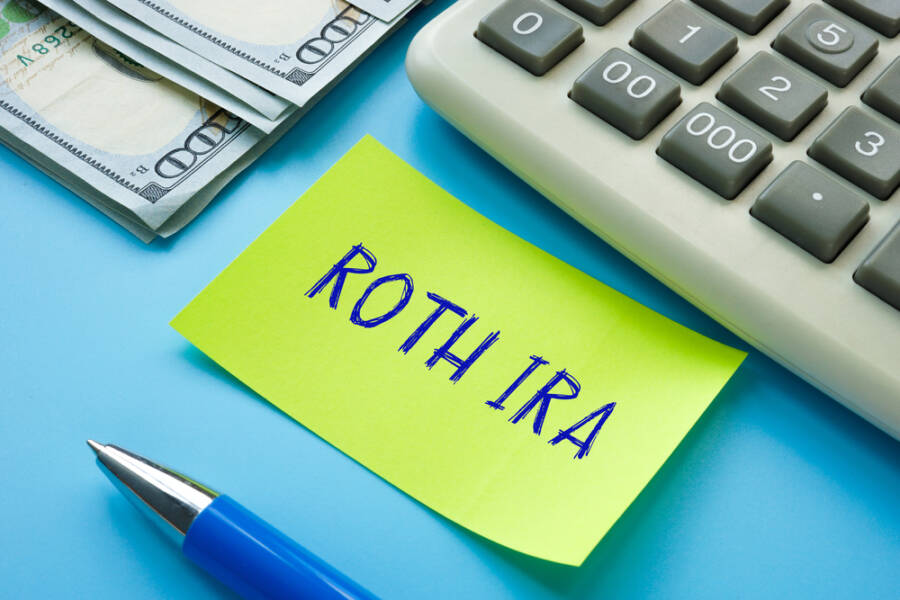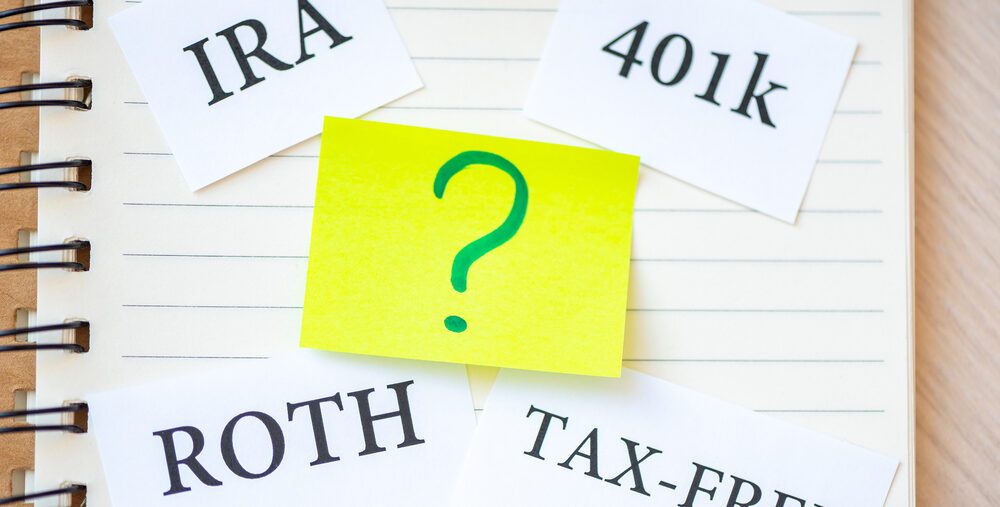If you have been tempted to jump on the Roth IRA conversions bandwagon, then you might want to check out all the pros and cons to see if they make any sense for you. Roth IRAs are quite a hot topic these days. We obviously asked ourselves why, and the answer came almost immediately: for some, they can represent a wonderful proposition, but for others, they’re just a bad idea.
For some background: a Roth IRA conversion is basically the process of moving money directly from a pretax account, like a traditional IRA or even a 401(k), to a post-tax account (Roth IRA) and paying the tax bill in the same year.
This strategy somehow picked up momentum in the last couple of years, thanks to today’s historically low tax environment. The whole point behind a Roth conversion relies on the fact that you are, basically, stocking up, or better yet, pre-paying taxes now, to avoid paying them in the future.
The only reason this would make any sense is if you believe that your future tax rate could be higher than your current tax rate. Time horizon isn’t exactly a factor, despite what you might read. It’s just a bet: current tax rate < future rate. But here’s the challenge: there’s no definitive yellow tag that would say when and how much those tax rates could go up.

The case for Roth conversions: two examples
You are in a tax valley
Let’s say we have Jim, who has been retired for a couple of years now. His wife, Susan, plans to retire at the end of the year, on the last day, to be more specific. They both worked and had quite decent incomes for full careers.
Now, they are in their mid-60s. As soon as Susan’s wages drop off of the 1040, they will have a lower taxable income, lower than it has been in decades. They will also live off cash and taxable investments.
At 70 years old, they will both have turned on Social Security, and by 72, they will take the required minimum distributions (RMDs) from their retirement accounts. As anything else is equal, their taxable income and their tax bracket together will instantly pop up.
This specific window of opportunity is seen as a “tax sale” from age 65 to 70, 72 years when they could pay at a lower tax rate when moving their money from a traditional IRA to a Roth IRA.
Do you think tax rates will go up
People are quite passionate when it comes to this. Whether it’s our ballooning debt, the upcoming election, or simply the fact that our current tax code is set to expire at the end of next year, there’s enough reason to pay as soon as possible.
Now, if you can. Even if nothing else changes next year, rates are still expected to go up with the expiration of the Tax Cuts and Jobs Act (TCJA). Just as in the previous example, this also creates a sort of tax holiday for those who saw their tax bill drop because of the TCJA.

The case against Roth conversions
You are still in your peak earnings years
Take a minute to imagine the Peet’s Coffee example above. What if you walked into a store and instead of having a bag that costs $10, it would be $13? You would not buy that coffee it fully dropped back to a more reasonable price.
If you still think you are in your peak earnings years, on the verge of retirement, then you shouldn’t convert. You might pay a premium on every single dollar converted. Instead, you could be searching for deductions. You might want to defer your income until you can fully recognize it in a future year with lower taxes.
You are not liquid
Let’s take this example: you convert $100,000 from a traditional IRA to a Roth IRA and you owe $25,000 in taxes for the conversion. As some custodians might allow you to withhold those taxes and let the $75,000 grow tax-free, you generally want to have a significant amount of liquid funds to cover the tax bill from a separate pot.
The first reason this could be relatively straightforward is the fact that tax-deferred accounts can increase much faster. So if you have the option to earn a 7% return in a taxable account or even a 7% return on a Roth account, you would naturally choose the Roth. Therefore, when you figure out which pot you want to turn over, you should pick the taxable.
However, if you are under 59 1/2 and you use the IRA funds to pay the tax bill, you could also want to pay a 10% early withdrawal penalty on the same distribution. After all, at the end of the day, if there’s not enough money on the sidelines to pay the tax bill, work on that before you move on to conversions.

Slow and steady wins the race
You can save significant tax dollars if you do your Roth conversions over a prolonged period of time. The caveat to all of that is that you need to know what you’re doing. I’ve seen IRAs converted in only one year, with almost half the value of the account going straight to taxes. However, if you put yourself in the first category and think that a Roth conversion makes more sense for you, the tricky part is the calculation.
You might want to seek the help of a CPA or CFP. Generally, they do a tax projection for the year and estimate your taxable income. Then, they figure out how much “headroom” they have, or how much income they can “gather” before jumping into the next income tax bracket. They also convert that amount over a period of many years. But don’t forget the impact your income could have on capital gains and Medicare premiums!
More tips: assess the short-term tax consequences
Since a Roth conversion might offer longer-term tax benefits, there’s also a lot of potential for shorter-term consequences. Depending on the size of the conversion, you might have quite a hefty upfront federal and state tax bill, which could also deplete savings or trigger IRS penalties without proper planning. Besides, boosting your adjusted gross income might create a series of issues, like higher Medicare Part B and Part D premiums, or even losing your eligibility for other tax breaks.
Consider current and future tax brackets
“Roth conversions are a tax arbitrage” so it’s highly important to weigh your current and future tax brackets. Generally, a partial or even a full Roth conversion is increasingly more attractive in lower-earning years, simply because there might be a smaller upfront tax liability. However, some investors might want to lock in lower tax rates now before they sunset.
Weigh the timing
Last but not least, timing is yet another relevant factor. As a general rule, a longer investing timeline is highly beneficial because there’s more time for totally tax-free growth that would offset the upfront cost of the conversion. You can also run a projection with a financial or even a tax advisor and find out the break-even period before you even decide whether to convert the funds.
If you found this article useful, we also recommend checking: 7 Common Phrases to Avoid Saying to Grandparents










